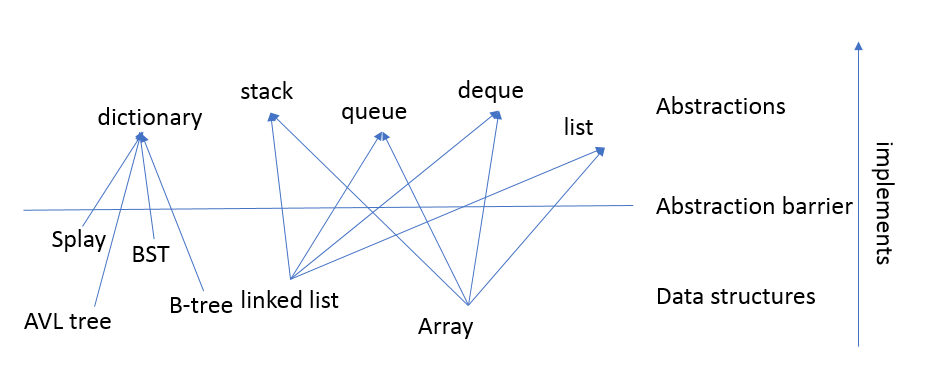MAW: Chapter 4 Reflection
Reflection
In Chapter 4, we learn about the tree data structure. If we take a look from ADT perspective, the ADT we learn about is called Dictionary (a.k.a Map) ADT, which represented by a set of (key, value) pairs that support insert, find, delete operations. The core idea for this ADT, as you can imagine, is to store information according to some key and be able to retrieve it efficiently. Now our big picture becomes:

Implementing dictionary ADT with tree structure brings following advantages:
- Trees reflect structural relationships in the data
- Trees are used to represent hierarchies
- Trees provide an efficient insertion and searching
- Trees are very flexible data, allowing to move subtrees around with minumum effort
Many different tree structures get presented in this chapter. Most fundamental ones are:
Some variations to the above structures are Order Statistic Tree (MAW 4.44), Threaded Tree (MAW 4.45), k-d Tree (MAW 4.46), and B*-tree (MAW 4.38).
Left Out
Some material I left out when I work through this chapter:
- 4.11 (cursor implementation of trees is not top priority)
- 4.33, 4.34 (Form a nice tree drawing project; don't have time to do them now)
- 4.12, 4.13, 4.14, 4.26.b, 4.37.b;c, 4.38 (interesting but may require too much effort)